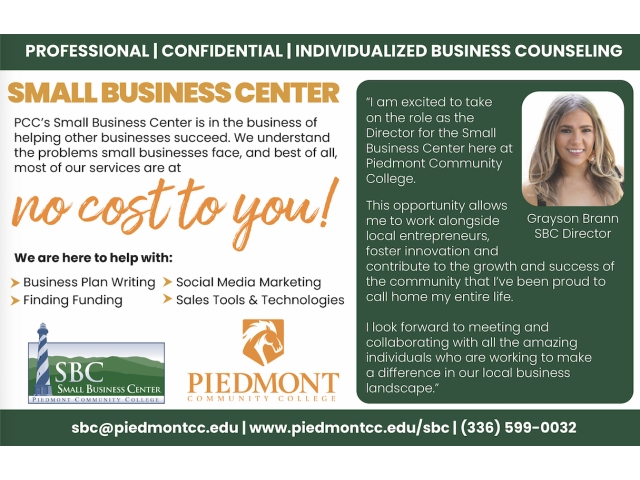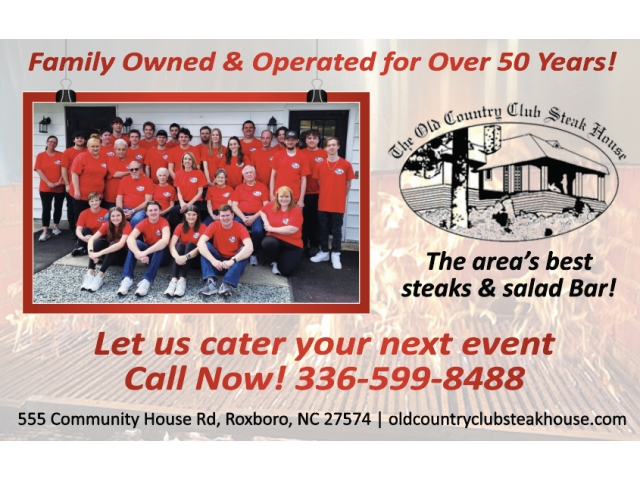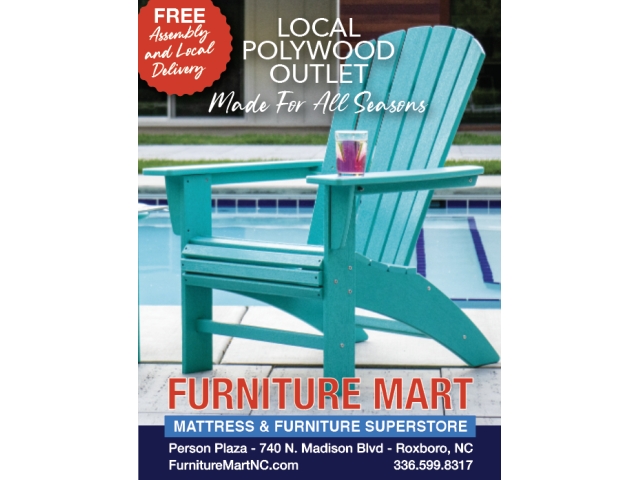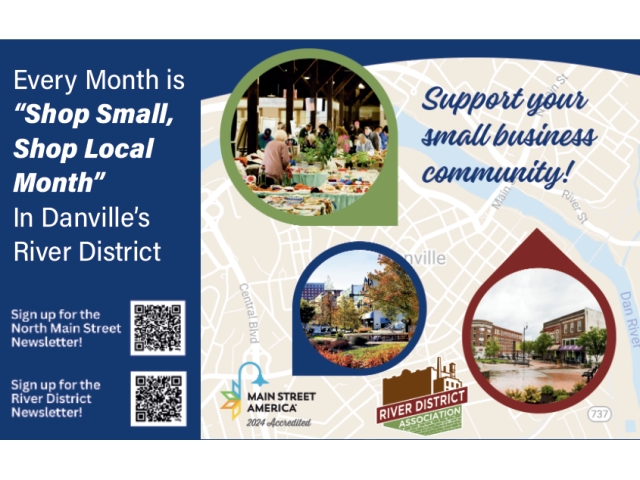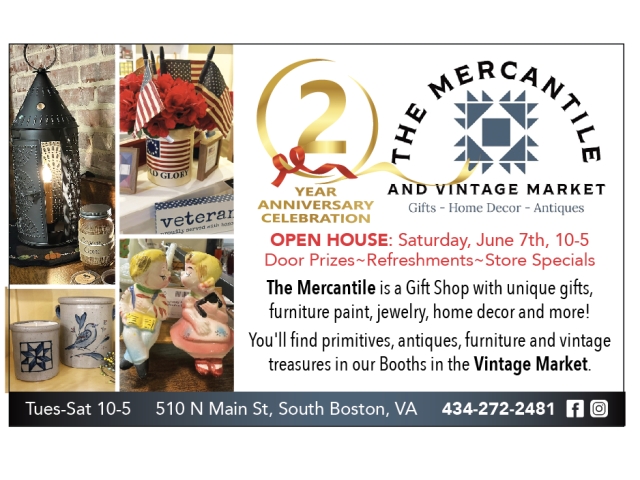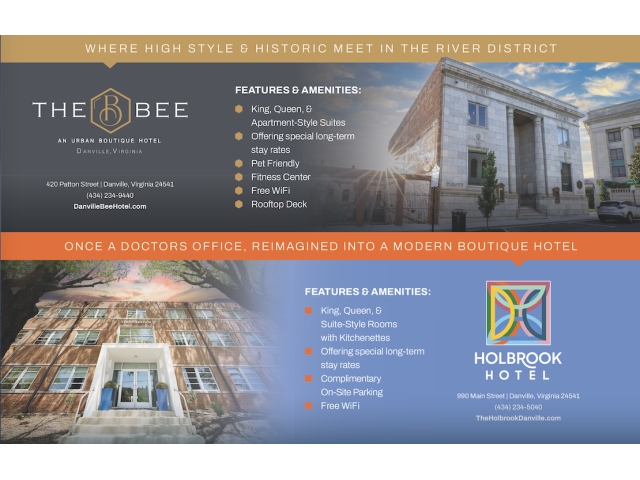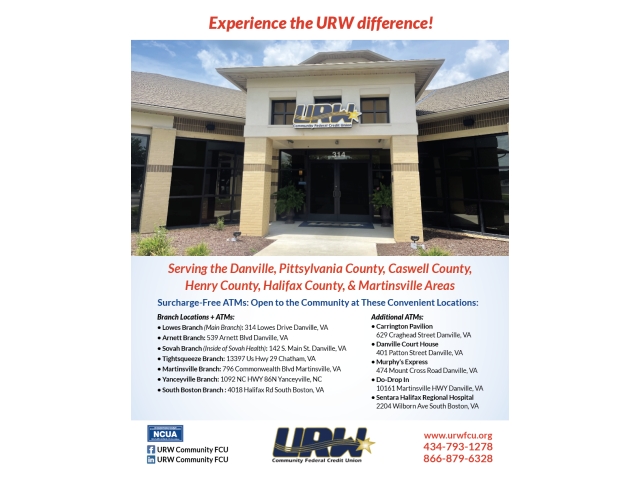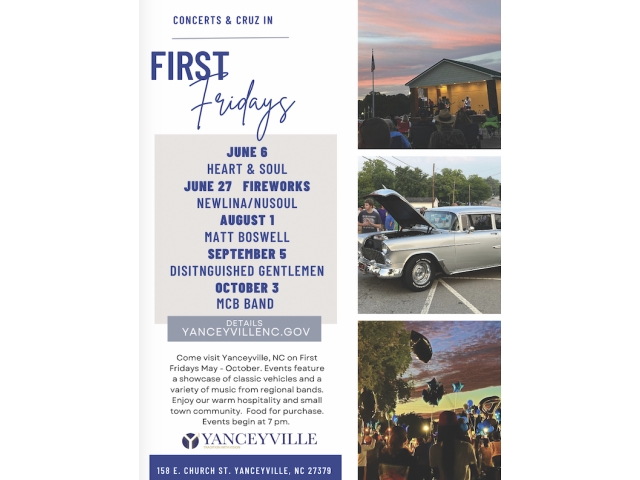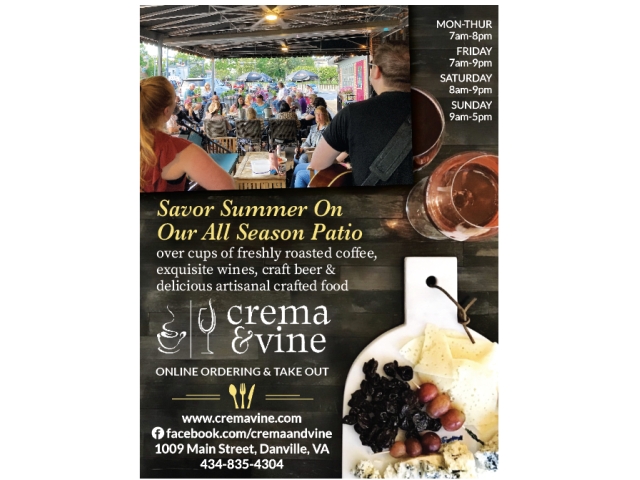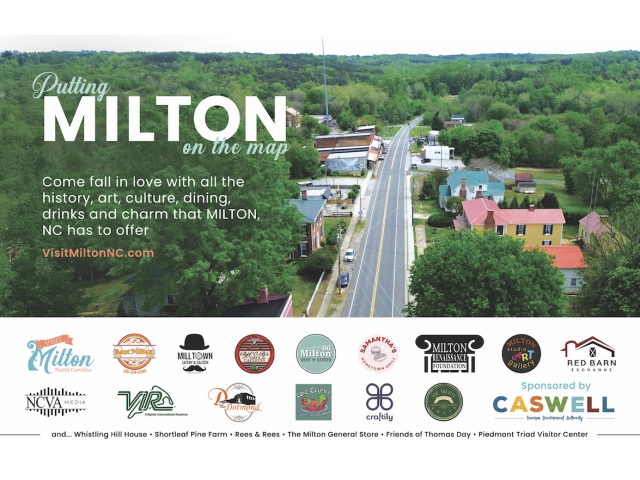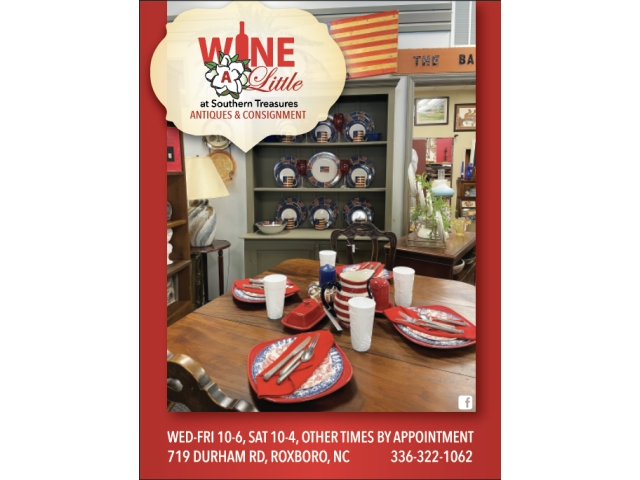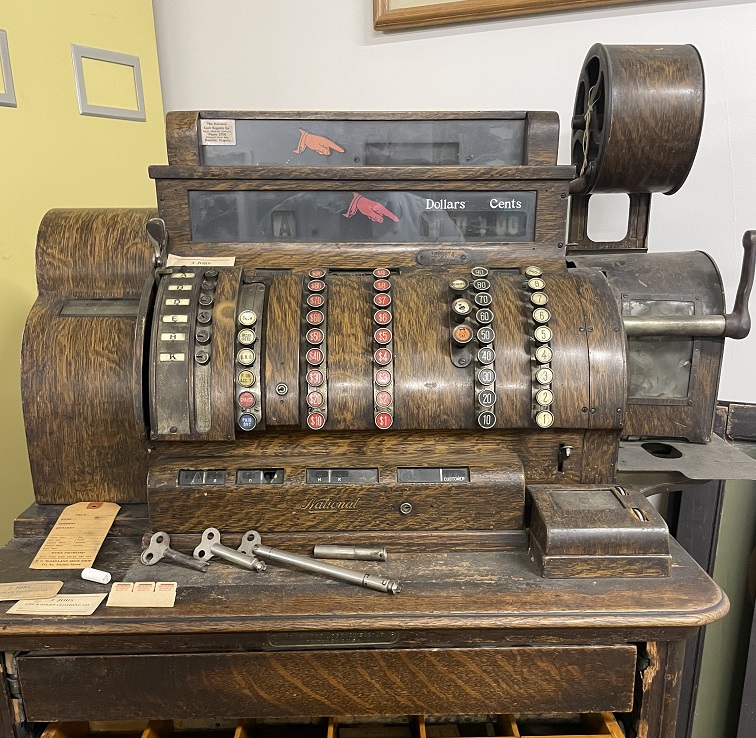
Koplen2-The Danville Historical Society has one of the original registers from Koplen’s store. Photo by Brian Carlton.
Even though the store has closed, the name remains. Take a drive down North Union Street in Danville and, when you arrive at 214, you’ll see “Abe Koplen Clothing Co.” in big black letters against a background of white bricks. Much like the store name, the Koplen family legacy is also intact. The family’s store and the way they did business helped change much for Danville over the years.
Today, 214 N. Union St. is the home of The Vintage Boutique, a thrift store known for its timeless goodies. Barry Koplen lives above the store in a renovated former warehouse that is now a 2,500-square-foot apartment. Barry, the last of the four generations of Koplens to own the store before it was sold and then went out of business, sees his latest home as “ineluctable,” a “destiny” of sorts. Koplen’s was open for 80 years before it made its final sale, and the reputation it gained over the years is one of courage and good business.
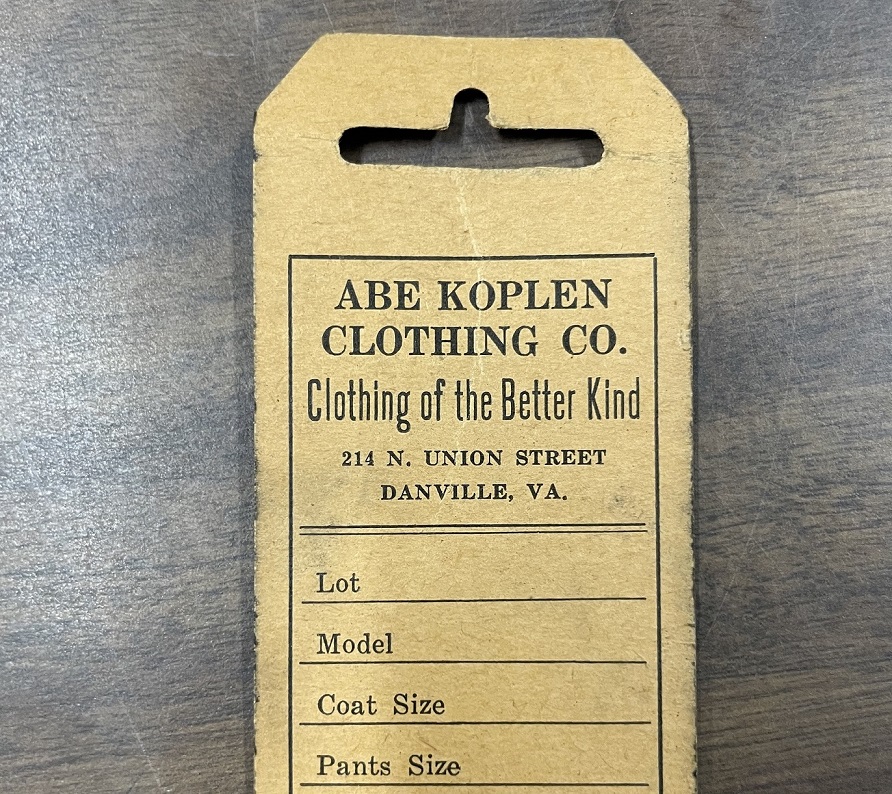
How Things Got Started
Less than 20 years after the Civil War ended, M. Koplen’s Clothing Company opened its doors for the first time. Max Koplen, a Jewish immigrant with no affinity for the Confederacy, came over from the “old country,” as his great-grandson Barry says, and made his future servicing Danville’s men’s clothing needs. Barry does not know from which part of Eastern Europe his great grandfather came, and he never knew the man. However, he did know Max’s son Abe, Barry’s grandfather.
Abe worked with Max while Max’s eldest son, Laurence, studied law at the University of Virginia. At the time, the store supported Max and Abe’s families adequately. However, when Laurence returned from college, he decided to get into the family business and not practice law – something Barry says was not planned.
And that meant things had to change. One store couldn’t produce enough income for three families. So in the 1930s, Abe set out to open his own store, Abe Koplen’s, just two blocks down from the original shop. After the new shop opened, Abe and Laurence never spoke another word to each other.
“It was a fact of life; you did not question it,” Barry said when asked about the family drama. Settling into his own store, Abe did things a bit differently. While his father’s store was more “genteel” in nature, Abe focused on the working man. He offered overalls, work shoes, and even plant bed covers. Eventually, Abe transitioned into selling affordable dress clothes for the men in the area. At Abe Koplen’s, the motto was “A Well Dressed Man Is Always In Style.”
Setting The Tone
Beyond clothes, Koplen’s also became known over the years for the way the company did business. When Abe Koplen died in 1956, Barry’s dad, Albert, took over. He was the first store owner in the area to hire Black sales staff. He also was the only business owner that gave Black farmers the same terms as their white counterparts. They could charge clothes early in the year and pay the account off in the fall when they sold their tobacco crop. “I once asked dad why he did that, and he said simply, ‘because it was the right thing to do.’ I think Dad had a sense of justice about him. [He] was raised to be ethical.”
Barry has firsthand memories of this period, as he was in high school at the time, working in the store for $2 a day to pay for “date nights.”
While reminiscing about his memories of the store, Barry said two accounts come to mind. The first centers around smoking. One of the first of the few disagreements Barry and Albert had about the store was when Barry told his dad he needed to ban cigarette smoking. He was afraid the smell would get into the clothes. “I told dad we had to do it, and when we did, only one man got mad about it,” said Barry. “But even that guy came back in later.”
The second story, a bit more provocative, comes from a time when there were prominent prostitution rings in Danville. “Some of the leaders of the prostitution ring would bring the women in to buy Levi’s,” said Barry. “One day, a woman was trying a pair on, and I asked her if she needed another size from the door. I would bring the clients different sizes as they tried stuff on, and she opened the door and said, ‘I think they fit. What do you think?’ She was naked from the waist up.” Barry said he just told her they looked good (the jeans) and went back to the sales floor.
The Later Years
In 2011, Albert passed away and Barry took over the store. For Barry, the shop was more than a business. He grew up in and out of the store, brought his kids there as a father himself, and now lives above the store. It’s his legacy.
Visitors to The Vintage Boutique today will see the store’s shell as it was when Albert owned it. A flood several years ago washed away the upgrades Barry and his dad had made in the later years, and it was stripped back down and restored to its original state.
Customers can also still see Barry’s “history wall.” A labor of love, the wall holds photos and relics that span all four generations of the Koplen family. Some of the pieces, including a receipt signed by Max, are more than 100 years old.
When Barry sold the store to James Cousins in 2014, he told Cousins that if a store succeeds, it is “because you put in the time.” Cousins did well for a while, but then the flood destroyed most of the merchandise in the store. That, coupled with the COVID-19 pandemic, caused Abe Koplen’s to shut its doors for good in 2020.
The memories and the store’s legacy are still alive with Koplen and his children. As he makes his way to his apartment every day through the old store that was his family’s legacy, he reflects on the enormity that is Abe Koplen’s.
 P.O. Box 6
P.O. Box 6
Danville Va. 24543
(434) 770-1386
danvillehistorical@gmail.com
danvillehistory.org
https://www.facebook.com/DanvilleHistoricalSociety
Erica Turman has written for publications across the Commonwealth of Virginia for more than five years. She works full time in the Communications and Public Affairs Office at Washington and Lee University in Lexington, Virginia, where she lives with her husband and their two dogs. When she’s not working, she likes traveling, reading, and eating good food on the weekend.














